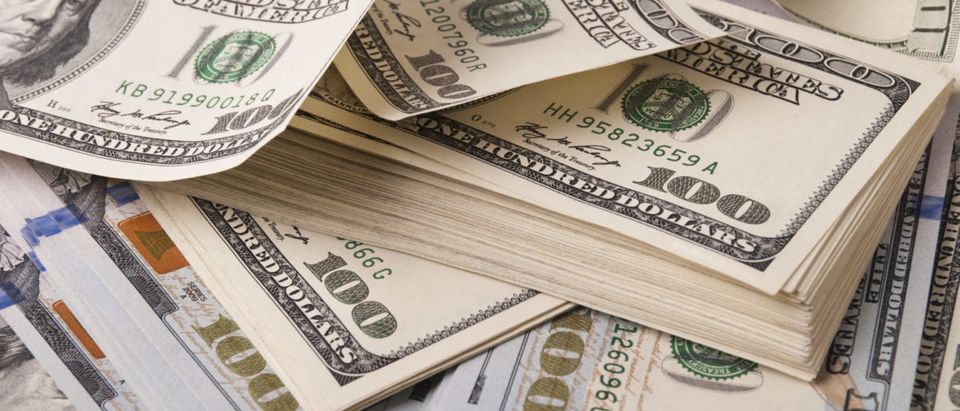With all the churning in Washington, D.C., you may have missed some very good news: how interest rates have plummeted. Currently, the 10-year U.S. Treasury note’s yield is about 2.1 percent. This number has a direct impact on home mortgage rates. Bottom line: it’s a good time to go to the mortgage casino. For anyone considering buying a house or refinancing, this could be your moment.
Why do U.S. Treasury note rates matter? When U.S. banks need to park their cash, they use Treasury notes (which are the equivalent of cash). For banks to make money, they need to make loans at interest rates that are higher than U.S. Treasury rates.
For home buyers and owners, the low rates can help create wealth.
With super-low mortgage rates, first-time home buyers can (and should) opt for a twenty-year loan instead of the traditional 30-year type. Thirty-year mortgages made sense when rates were high. Forty years ago, new mortgages had double-digit interest rates that gobbled up most of a monthly payment.
In the current low interest rate environment, many homeowners enjoy a mortgage payment that puts more money to pay down the principal (equity in the property) than in interest.
Today, a purchaser opting for a twenty-year mortgage will be paying off a larger share of the principal starting with the first payment. With interest rates so low, the interest share of the monthly payment will be smaller compared to a 30-year product.
For people considering refinancing, they should look to shorten, not lengthen their mortgage indebtedness.
Let’s say the Smiths family took out a 30-year mortgage ten years ago for $300,000. They could refinance by flipping their old mortgage into a new 30-year mortgage. (This assumes the Smiths do not take out any equity paid in over the past ten years). Their monthly payments would be less, but their payoff date would be pushed back by 10 years.
By refinancing under a 20-year mortgage; the Smiths’s payoff date would be the same as with their old mortgage. The Smiths, however, need to review the refinancing fees and compare these costs to monies saved by having lower monthly payments.
A 15-year mortgage is a better choice. The low interest rate payment coupled with a higher equity payment could result in a monthly payment that’s similar to their 30-year mortgage payment. Plus, shorter-term mortgages have less risk to the lender, and result in lower interest rates compared to 30-year products.
Further the Smiths want to burn their mortgage sooner, they could go for a 10-year product. These mortgages tend to have the lowest interest rates.
While low home mortgage interest rates are a boon for borrowers, they also impose financial discipline.
Borrowers might forget that banks, mortgage companies, etc., make money by lending money — and how they make more money by lending more money.
Typically, a refinancing lender will ask if the borrower wants to “take money out,” meaning the borrower refinances the total original amount that had been financed by the 30-year mortgage, and receives a check for the equity he or she has paid.
Lenders aren’t evil. When they propose “taking money out” — they’re presenting an option for the borrower. This option might work if the borrower has a lot of credit card debt (with interest rates over twenty percent).
The upside for the lender: loaning more money by refinancing the original full equity amount.
But the borrower must have the discipline not to acquire more high-interest credit card debt. Refinancing is not cost-free, and “taking money out” pushes the mortgage payoff date further into the future.
To wrap up: for disciplined borrowers with good credit scores, now may be the best time to get a first mortgage or refinance an old one.
No-one can predict with certainty how traders will react to the 2020 elections, if China refuses to purchase Treasury bonds, or (to quote Donald Rumsfeld) an “unknown unknown” event happens. Financial turmoil drives central banks and individuals to “safe havens,” withTreasury notes among the safest. But turmoil will drive up demand for Treasury notes, and push up interest — and mortgage — rates.
Waiting a year (or perhaps just six months) may be a bad bet in the mortgage casino. It seems a better bet to get in the game and take advantage of low interest rates now.
Joanne Butler was an international trade specialist at the Office of the U.S. Trade Representative and at the Foreign Agricultural Service at USDA in the George H.W. Bush administration. In the George W. Bush administration, she was a senior adviser and speechwriter at the Department of Labor.
The views and opinions expressed in this commentary are those of the author and do not reflect the official position of The Daily Caller.


